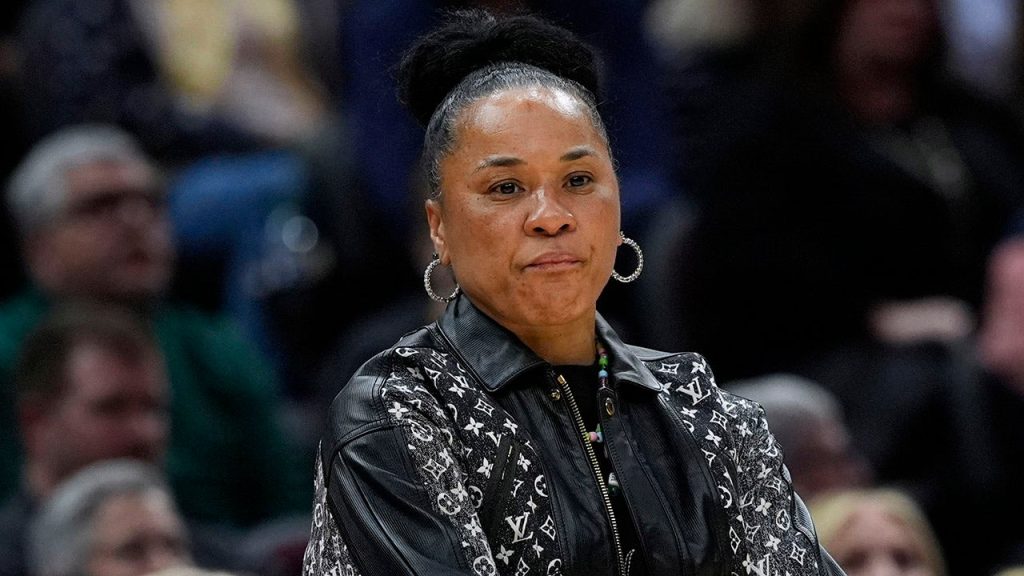South Carolina Gamecocks basketball coach Dawn Staley faced backlash on social media after expressing her support for transgender participation in women’s sports during a press conference following their Final Four win. Staley stated that if someone considers themselves a woman and wants to play sports, they should be able to do so. This sparked a debate online, with some criticizing her for not recognizing the physical differences between male and female athletes. However, others praised Staley for her inclusivity and for standing up for transgender women in sports.
OutKick contributor Riley Gaines criticized Staley’s stance, pointing out the differences between men’s and women’s basketball and questioning whether she supports similar cross-category competitions. Gaines argued that women’s sports were intentionally exclusive, and Staley’s support for transgender participation undermines that exclusivity. South Carolina state Representative Adam Morgan and former NFL player Chris Manno also expressed disapproval of Staley’s comments, suggesting that allowing transgender women in women’s sports goes against traditional values and creates unfair competition.
Despite the backlash, many people, including sports journalist Lindsay Gibbs, applauded Staley for her stance on transgender inclusion in sports. Gibbs referred to it as an “incredible moment” to see the top coach of a top team supporting trans women on a big stage. Staley’s response demonstrated her commitment to inclusivity and diversity in sports, even in the face of criticism. Iowa head coach Lisa Bluder, on the other hand, chose to remain focused on the national championship game against South Carolina and avoided directly addressing the issue of transgender participation in women’s sports.
The debate surrounding transgender participation in women’s sports continues to be a divisive and contentious issue, with supporters and critics voicing their opinions on social media platforms. While some argue that transgender women should not be allowed to compete in women’s sports due to physical advantages, others advocate for inclusivity and equal opportunities for all athletes, regardless of gender identity. Staley’s remarks have sparked conversations about the future of women’s sports and how best to ensure fairness and equality for all athletes. As the discussion evolves, it remains to be seen how sports organizations and policymakers will address the complex challenges of gender inclusion in athletics.


